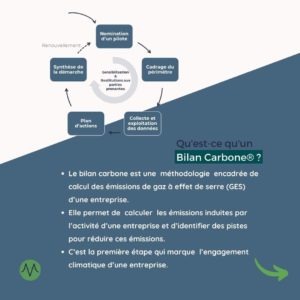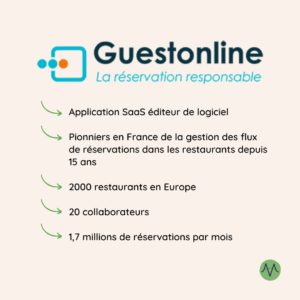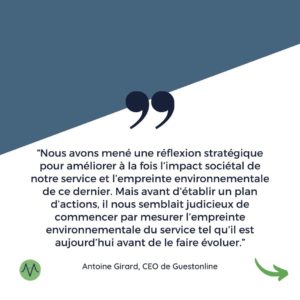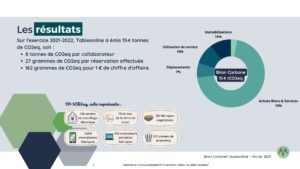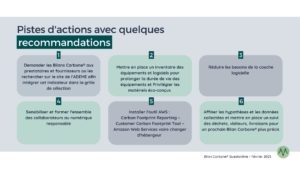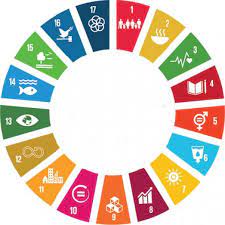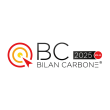27 juillet 2023
Assessing the carbon footprint of Guestonline, a software editor
This article presents Guestonline’s insights after receiving support from Mavana for conducting their carbon footprint assessment (Bilan Carbone®).
What is a carbon footprint assessment (or Bilan Carbone®)?
Are you unfamiliar with this environmental quantification tool? Here are some key points to get you started.
For further details, check out our comprehensive article on the subject.
Who is Guestonline?
As a pioneer in online restaurant reservations for nearly 15 years, the Guestonline team offers restaurants a centralized platform to manage all their bookings in one single online space, integrating over 35 reservation channels.
Beyond their core service, Guestonline is committed to making a positive impact of its business, with a vision of transforming restaurant reservations into Responsible Reservations®. By progressively eliminating booking commissions and adopting a socially responsible business model, Guestonline’s vision is to be resolutely mindful of its impact, ensuring that its ecosystem and its actions are always geared towards one goal: a more humane and socially responsible world.
As example, the Guestonline team has already made telecommuting part of its daily routine for over a decade, and focuses on the digital innovation in reservation services, in alignment with perma-business principles.
Why conduct a Bilan Carbone®?
Antoine, the management team of Guestonline had several objectives:
- Gaining insights into the historical impact of their business on their ecosystem, and raising awareness of this impact.
- Obtaining a detailed breakdown of their emissions
- Improving their economic performance
- Estabilshing impact indicators for their business (such as grams of CO2eq per reservation…)
As a fully remote company, it would seem natural to congratulate oneself for reducing the environmental footprint of travel to and from work. However, there are other factors to consider. The desire to precisely understand the distribution of the company’s emissions prompted the GuestOnline team to embark on the journey of Bilan Carbone®.
Another significant driver behind Guestonline’s decision to launch a Bilan Carbone® was to improve the company’s economic performance. Seeking to reduce expenses and foster more responsible consumption helps in reducing the company’s vulnerabilities. The Bilan Carbone® methodology assists in identifying and classifying energy and resource consumption items. Through this process, the company can discern which resources and energy expenses are optional (i.e. avoidable) and which are essential (i.e. requiring optimization).
After an initial meeting to refine their needs, Antoine Girard, the Guestonline manager realized that carrying out a Bilan Carbone® would also enable them to set up initial environmental impact indicators linked to their business. For example, they could calculate the carbon footprint (in g of CO2eq) of each reservation – a pioneering initiative in the restaurant and catering industry. « We need to go beyond the desire to reduce our footprint. We must also ensure that any new project or a structure doesn’t have a more negative impact than the practices in place before [the existence of the online booking service, i.e. booking by phone or simply booking by visiting the venue]. It is with this perspective that Guestonline launched the Bilan Carbone® project. »
Why Mavana?
"I have decided to partner with Mavana for its team's expertise in Digital Responsibility and Lifecycle Analysis. The flexibility of their support enabled us to move forward at our preferred pace. We sought assistance to delve deeper into our considerations and address the question: have we inadvertently developed a digital service with a higher environmental impact than traditional booking methods? Previously, people would either pick up the phone or even go directly to the restaurant to make a reservation, but were constrained by opening hours, risking the possibility of not being greeted."
Antoine Girard, CEO de Guestonline
What are the outcomes?
The Bilan Carbone® covered the period of August 2021 to July 2022, encompassing 19 employees located across mainland France at the Toulouse site, the Ile de la Réunion site, and telecommuting locations in France and Spain.
« Within this Bilan Carbone®, we felt it was crucial to gauge precisely the impact of:
- Cloud infrastructure
- Business travels to tradeshows and events
- telecommuting arrangements
- the use of our services by end-users ».
Last year, Guestonline’s emissions amounted to 154 tons of CO2eq, roughly equivalent to almost 100,000 chicken meals. To put things into perspective: while a reservation for 4 people at a seafood restaurant emits 27g of CO2eq, the meals themselves weight for approximatively 8kg of CO2eq (excluding the travel to the restaurant).
Like for many software service-oriented companies, the bulk of their emissions stem from purchased goods and services, accounting for 70% of their carbon footprint (with scope 3 representing 96% of the total balance).
Digital operations (including Cloud infrastructure, collocated servers and confirmation emails sent to users) account for 26% of their emissions.
Team travels to events account for 10% of emissions.
Their telecommuting policy has been endorsed.
Service utilization contributes to 10% of their greenhouse gas emissions.
« A restaurant reservation made on our platform entails an environmental cost of 27 grams of CO2eq. Our whole team is mobilized to work on reducing this impact ».
Kelly, COO of Mavana: « our main challenge in this assessment was to calculate and establish emission factors for the most significant service purchase expenses. We didn’t want to settle for monetary ratios and aimed for the most accurate initial assessment possible. »
For full transparency, the complet Bilan Carbone® is published here: Identity sheet – Consultation publication form – Bilans GES (ademe.fr)
What are the main takeaways and next actions?
« We were surprised to find out that our servers only contribute to 2% of our emissions. They’ve been in used for quite some time and we aim to keep them operational for as long as possible.
Another eye-opener was discovering that 10% of our emissions come from customers using our services. Unfortunately, we have limited levers for action, since we have no control over the terminals used by our customers. This was a frustrating discovery. Nevertheless, we are committed to optimizing our online services to reduce the environmental impacts of the use phase. »
What next?
In collaboration with the Mavana team, Guestonline has developed an action plan aimed at reducing the impact of its activity by nearly 40% by 2030.
Requesting carbon assessments from your service providers will enable to refine the monetary ratios and get results that are closer to reality.
Nearly 80% of the impact of digital technology occurs before and during the devices manufacturing phase. Taking care of your equipment to expand its lifetime is part of a responsible digital strategy.
Raising awareness is an essential pillar for any company wishing to embark on a low-carbon transition. It makes all employees aware of the importance of the changes ahead.
Suggestions from the Mavana team
One of Guestonline’s most important actions is to improve the user experience to make the booking process even smoother and faster, because the majority of usage-related emissions stem from the time spent by users during this booking process.
Carrying out a comparative study between the impacts of online booking and traditional booking methods (such as phone or in-person).
Conducting a multi-criteria study, to assess impacts on other natural resources, such as drinking water.
Like Guestonline, you can benefit from a Bilan Carbone® at a reduced price by working with Mavana through the Diag Décarbon’action scheme. Don’t hesitate to contact us, we’ll be happy to support you in this process.


